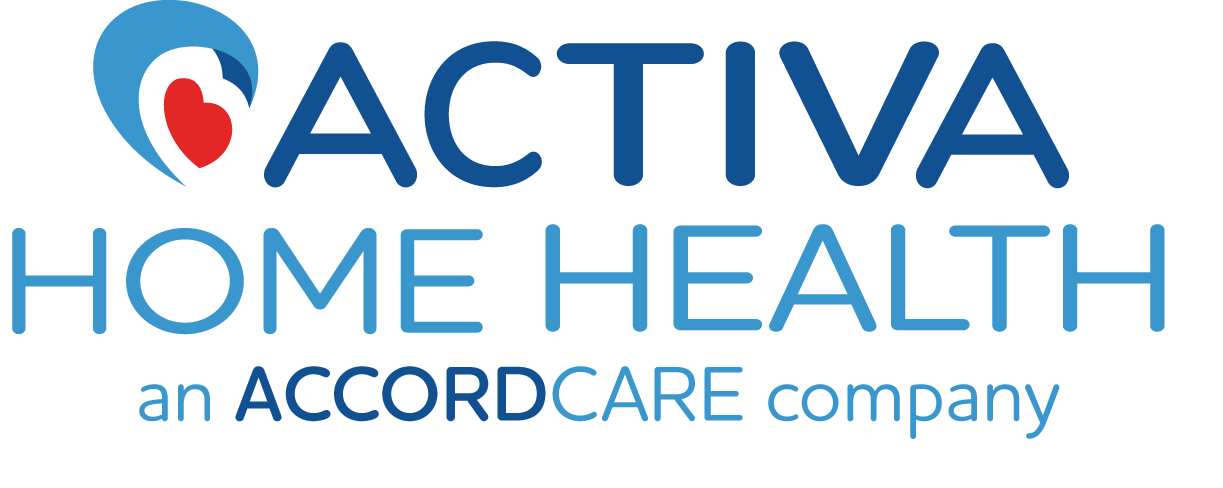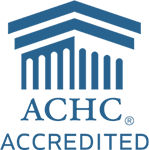PURPOSE
To ensure the health and safety of our patients, employees, and visitors’ facemasks will be required under special circumstances, such as when a patient, visitor, or employee is exhibiting signs or symptoms of or has a diagnosed infectious disease that can be spread through droplet or airborne transmission.
To ensure compliance with Florida Statutes § 408.824 which requires distinct guidelines for when a provider may require a visitor, patient, or employee to wear a facial covering and allows for an opt-out of the facial covering policy
DEFINITIONS
“Common area” refers to areas in a health care setting where patients are not treated, diagnosed, or examined.
“Employee” refers to any person under employment or contract of a health care setting, including health care practitioners, administrative staff, maintenance staff, aides, contractors, students, and volunteers.
“Health care setting” refers to any place where health care practitioners and/or health care providers practice their profession or provide services.
“Patient” refers to a person receiving services from a health care practitioner or health care provider.
“Sterile areas” refers to locations where surgery is conducted or where procedures that require aseptic techniques are performed.
“Sterile procedure” refers to aseptic procedures with the goal of minimizing the risk of microbial contamination to reduce the rate of invasive or surgical site infection.
“Visitor” refers to any person in a health care setting who is not an employee or patient of the health care setting.
POLICY
- The agency will require a patient to wear a mask or facial covering only when the patient is in a common area of the health care setting and is exhibiting signs or symptoms of or has a diagnosed infectious disease that can be spread through droplet or airborne transmission.
- Agency staff will require a visitor to wear a mask or facial covering only when the visitor is:
- Exhibiting signs or symptoms of or has a diagnosed infectious disease that can be spread through droplet or airborne transmission,
- In an area where sterile procedures are being performed,
- In an in-patient, clinical room, or home with a patient who is exhibiting signs or symptoms of or has a diagnosed infectious disease that can be spread through droplet or airborne transmission, or
- Visiting a patient whose treating health care practitioner has diagnosed the patient with or confirmed a condition affecting the immune system in a manner which is known to increase risk of transmission of an infection from employees without signs or symptoms of infection to a patient and whose treating practitioner has determined that the use of facial coverings is necessary for the patient’s safety.
- Opt-Out Requirements are as follows:
- Pursuant to 59AER23-2(1), health care practitioners and health care providers who choose to require a mask or facial covering for any patient must include in the policy a provision for the opting-out of wearing a facial covering. Such policy must be in accordance with the Florida Patient Bill of Rights and Responsibilities, section 381.026, F.S.
- Pursuant to 59AER23-2(2), health care practitioners and health care providers who choose to require a mask or facial covering for any visitor must include in the policy a provision for the opting-out of wearing a facial covering if an alternative method of infection control or infectious disease prevention is available.
- The agency will allow staff to opt out of mask/facial covering requirements unless the staff member is:
- Conducting sterile procedures,
- Working in a sterile area,
- Working with a patient whose treating health care practitioner has diagnosed the patient with or confirmed a condition affecting the immune system in a manner which is known to increase risk of transmission of an infection from employees without signs or symptoms of infection to a patient and whose treating practitioner has determined that the use of facial coverings is necessary for the patient’s safety,
- With a patient on droplet or airborne isolation, or
- Engaging in non-clinical potentially hazardous activities that require facial coverings to prevent physical injury or harm in accordance with industry standards
PROCEDURE
- Agency staff will require a patient to wear a mask or facial covering only when the patient is in a common area of the health care setting and is exhibiting signs or symptoms of or has a diagnosed infectious disease that can be spread through droplet or airborne transmission.
- Agency staff will require a visitor to wear a mask or facial covering only when the visitor is:
- Exhibiting signs or symptoms of or has a diagnosed infectious disease that can be spread through droplet or airborne transmission,
- In an area where sterile procedures are being performed,
- In a room with a patient who is exhibiting signs or symptoms of or has a diagnosed infectious disease that can be spread through droplet or airborne transmission, or
- Visiting a patient whose treating health care practitioner has diagnosed the patient with or confirmed a condition affecting the immune system in a manner which is known to increase risk of transmission of an infection from employees without signs or symptoms of infection to a patient and whose treating practitioner has determined that the use of facial coverings is necessary for the patient’s safety.
- Patients or visitors may opt-out from wearing a mask or facial covering by notifying a staff member, who will alert the Director of Professional Services, provided there are alternative means for infection control. Patients will be provided the same respect, level of medical care, and information as any other patient pursuant to the Florida Patient Bill of Rights and Responsibilities, section 381.026, F.S. The request will be reviewed by applying the agency’s infection control procedures to determine if an alternative method of infection control or infectious disease prevention is available. The following exclusions will apply to patients and visitors who request to opt-out from wearing a mask/facial covering:
- If there are no alternative methods of infection control, a patient may not opt-out of any mask or facial covering requirement in the following circumstances:
- A Patient has been diagnosed or is exhibiting signs or symptoms of an infectious disease that can be spread through droplet or airborne transmission.
- Opting out has been identified by a Physician/Allowable Non-Physician Practitioner as being contraindicated for medical or safety issues; or
- Opting-out would otherwise infringe on the rights and would risk the safety or health of other patients, individuals, or staff of the agency.
- If there are no alternative methods of infection control, a visitor may not opt-out of any mask/facial covering requirement in the following circumstances:
- The visitor has been diagnosed or is exhibiting signs or symptoms of an infectious disease that can be spread through droplet or airborne transmission.
- Opting-out would otherwise infringe on the rights and would risk the safety or health of other patients, individuals, or staff/employees of agency.
- The agency reserves the right to consider other exclusions from the opt-out provisions in order to comply with applicable state and federal laws, rules, requirements, and regulations.
- If there are no alternative methods of infection control, a patient may not opt-out of any mask or facial covering requirement in the following circumstances:
- Staff will adhere to Universal Blood and Body Fluid Precautions (Universal Precautions) and Standard Precautions. Staff will be required to wear an FDA-certified medical/surgical mask,KN95 respirator or NIOSH approved respirator during any of the below conditions. Staff may opt-out of any mask requirement, unless the staff member is:
- Conducting a sterile procedure that calls for practices that minimize the risk of microbial contamination to reduce the rate of infection. Examples include during PICC line/tunneled catheter or implanted port dressing change, during a wound dressing change, during a Foley catheter change.
- Caring for a patient or being present while sterile procedures are being performed.
- Working with a patient who is on airborne or droplet isolation.
- Working with a patient whose provider has diagnosed the patient with or confirmed a condition affecting the immune system in a manner which is known to increase the risk of transmission of an infection to the patient from others without signs or symptoms of infection, and whose provider has determined that the use of a facial covering is necessary for the patient’s safety.
- Engaging in non-clinical potentially hazardous activities that require a mask to prevent infection, injury, or harm in accordance with national, state, and industry standards, and state and federal laws, rules, requirements and regulations.
POLICY
- The agency will require a patient to wear a mask or facial covering only when the patient is in a common area of the health care setting and is exhibiting signs or symptoms of or has a diagnosed infectious disease that can be spread through droplet or airborne transmission.
- Agency staff will require a visitor to wear a mask or facial covering only when the visitor is:
- Exhibiting signs or symptoms of or has a diagnosed infectious disease that can be spread through droplet or airborne transmission,
- In an area where sterile procedures are being performed,
- In an in-patient, clinical room, or home with a patient who is exhibiting signs or symptoms of or has a diagnosed infectious disease that can be spread through droplet or airborne transmission, or
- Visiting a patient whose treating health care practitioner has diagnosed the patient with or confirmed a condition affecting the immune system in a manner which is known to increase risk of transmission of an infection from employees without signs or symptoms of infection to a patient and whose treating practitioner has determined that the use of facial coverings is necessary for the patient’s safety.
- Opt-Out Requirements are as follows:
- Pursuant to 59AER23-2(1), health care practitioners and health care providers who choose to require a mask or facial covering for any patient must include in the policy a provision for the opting-out of wearing a facial covering. Such policy must be in accordance with the Florida Patient Bill of Rights and Responsibilities, section 381.026, F.S.
- Pursuant to 59AER23-2(2), health care practitioners and health care providers who choose to require a mask or facial covering for any visitor must include in the policy a provision for the opting-out of wearing a facial covering if an alternative method of infection control or infectious disease prevention is available.
- The agency will allow staff to opt out of mask/facial covering requirements unless the staff member is:
- Conducting sterile procedures,
- Working in a sterile area,
- Working with a patient whose treating health care practitioner has diagnosed the patient with or confirmed a condition affecting the immune system in a manner which is known to increase risk of transmission of an infection from employees without signs or symptoms of infection to a patient and whose treating practitioner has determined that the use of facial coverings is necessary for the patient’s safety,
- With a patient on droplet or airborne isolation, or
- Engaging in non-clinical potentially hazardous activities that require facial coverings to prevent physical injury or harm in accordance with industry standards
PURPOSE
To ensure the health and safety of our patients, employees, and visitors’ facemasks will be required under special circumstances, such as when a patient, visitor, or employee is exhibiting signs or symptoms of or has a diagnosed infectious disease that can be spread through droplet or airborne transmission.
To ensure compliance with Florida Statutes § 408.824 which requires distinct guidelines for when a provider may require a visitor, patient, or employee to wear a facial covering and allows for an opt-out of the facial covering policy
DEFINITIONS
“Common area” refers to areas in a health care setting where patients are not treated, diagnosed, or examined.
“Employee” refers to any person under employment or contract of a health care setting, including health care practitioners, administrative staff, maintenance staff, aides, contractors, students, and volunteers.
“Health care setting” refers to any place where health care practitioners and/or health care providers practice their profession or provide services.
“Patient” refers to a person receiving services from a health care practitioner or health care provider.
“Sterile areas” refers to locations where surgery is conducted or where procedures that require aseptic techniques are performed.
“Sterile procedure” refers to aseptic procedures with the goal of minimizing the risk of microbial contamination to reduce the rate of invasive or surgical site infection.
“Visitor” refers to any person in a health care setting who is not an employee or patient of the health care setting.
PROCEDURE
- Agency staff will require a patient to wear a mask or facial covering only when the patient is in a common area of the health care setting and is exhibiting signs or symptoms of or has a diagnosed infectious disease that can be spread through droplet or airborne transmission.
- Agency staff will require a visitor to wear a mask or facial covering only when the visitor is:
- Exhibiting signs or symptoms of or has a diagnosed infectious disease that can be spread through droplet or airborne transmission,
- In an area where sterile procedures are being performed,
- In a room with a patient who is exhibiting signs or symptoms of or has a diagnosed infectious disease that can be spread through droplet or airborne transmission, or
- Visiting a patient whose treating health care practitioner has diagnosed the patient with or confirmed a condition affecting the immune system in a manner which is known to increase risk of transmission of an infection from employees without signs or symptoms of infection to a patient and whose treating practitioner has determined that the use of facial coverings is necessary for the patient’s safety.
- Patients or visitors may opt-out from wearing a mask or facial covering by notifying a staff member, who will alert the Director of Professional Services, provided there are alternative means for infection control. Patients will be provided the same respect, level of medical care, and information as any other patient pursuant to the Florida Patient Bill of Rights and Responsibilities, section 381.026, F.S. The request will be reviewed by applying the agency’s infection control procedures to determine if an alternative method of infection control or infectious disease prevention is available. The following exclusions will apply to patients and visitors who request to opt-out from wearing a mask/facial covering:
- If there are no alternative methods of infection control, a patient may not opt-out of any mask or facial covering requirement in the following circumstances:
- A Patient has been diagnosed or is exhibiting signs or symptoms of an infectious disease that can be spread through droplet or airborne transmission.
- Opting out has been identified by a Physician/Allowable Non-Physician Practitioner as being contraindicated for medical or safety issues; or
- Opting-out would otherwise infringe on the rights and would risk the safety or health of other patients, individuals, or staff of the agency.
- If there are no alternative methods of infection control, a visitor may not opt-out of any mask/facial covering requirement in the following circumstances:
- The visitor has been diagnosed or is exhibiting signs or symptoms of an infectious disease that can be spread through droplet or airborne transmission.
- Opting-out would otherwise infringe on the rights and would risk the safety or health of other patients, individuals, or staff/employees of agency.
- The agency reserves the right to consider other exclusions from the opt-out provisions in order to comply with applicable state and federal laws, rules, requirements, and regulations.
- If there are no alternative methods of infection control, a patient may not opt-out of any mask or facial covering requirement in the following circumstances:
- Staff will adhere to Universal Blood and Body Fluid Precautions (Universal Precautions) and Standard Precautions. Staff will be required to wear an FDA-certified medical/surgical mask, KN95 respirator or NIOSH approved respirator during any of the below conditions. Staff may opt-out of any mask requirement, unless the staff member is:
- Conducting a sterile procedure that calls for practices that minimize the risk of microbial contamination to reduce the rate of infection. Examples include during PICC line/tunneled catheter or implanted port dressing change, during a wound dressing change, during a Foley catheter change.
- Caring for a patient or being present while sterile procedures are being performed.
- Working with a patient who is on airborne or droplet isolation.
- Working with a patient whose provider has diagnosed the patient with or confirmed a condition affecting the immune system in a manner which is known to increase the risk of transmission of an infection to the patient from others without signs or symptoms of infection, and whose provider has determined that the use of a facial covering is necessary for the patient’s safety.
- Engaging in non-clinical potentially hazardous activities that require a mask to prevent infection, injury, or harm in accordance with national, state, and industry standards, and state and federal laws, rules, requirements and regulations.






